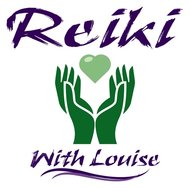It helps to understand that there are only a small handful of training associations for placenta encapsulation. While not a new process, encapsulation is growing in popularity. However, it is not regulated by any state or federal agencies, so there are some differences in training philosophies. While I will only steam-process placentas (as opposed to raw-processing), there are standards across the industry that all professional encapsulators follow. Your encapsulator should have taken one of the main encapsulation training courses. They should also hold a current Safe Food Handler's certificate and a BloodBorne Pathogens and Infectious Control certificate. Understanding the implications of improper handling of your placenta is crucial for the safety of your family and mine! Watching a DIY Youtube video just won't cut it for this project!
Advocates for the "your home" team cite random stories of placentas being mixed up at a busy encapsulator's home (I only do 1 at a time, so that's never going to be an issue) and suggest that there is a lack of transparency when you are not there to supervise. I believe it may be this "accusation" of professional ethics going out the door just because you are not watching our every move that is where some of that "controversial drama" may stem from. Personally, I am equally as strict and cautious when I work from my home as I would be in your home. Location does not dictate to my professionalism.
Advocates for the "my home" team typically feel more "in control" of the process. They can look in on the dehydrator during the night to check progress and to be sure it is still running properly. Most times, the placenta is obtained the same day, or the next day, that your baby is born and new moms, as well as encapsulators, may not be comfortable with someone in their home when they might still be at the hospital. In the case of home-births, maybe mom needs time to rest and just isn't up to having someone in her home just yet.
I trained and certified with PlacentaBenefits.info. They have been around since 2006 and, to my knowledge, are the only agency that has its standard operating procedures on file with the FDA. They are also the main training agency that advocates working in your client's home ONLY. Now, here's where the controversial part comes in for me... the last time I checked, there is nothing on their consumer website that mentions anything about where the process should take place. Nothing. In fact, it was really only part way through the training modules that I realized that they advocate that encapsulation should only take place in the clients' home. I completed the course and lined up some clients. Three of my first four clients were from our local Amish community. If Amish families have any electricity, it is typically through solar panels. Good enough for basic lighting or to run some fans on a hot summer evening, but not reliable enough (in my opinion) to run a dehydrator overnight for the 12+ hours (I usually go longer) necessary to completely dry the placenta slices for grinding into powder for capsules.. I worried that the machine might kick off during the night. If the pieces are not completely dry, even the tiniest amount of moisture can cause molding and the capsules would be unsafe for consumption. Fortunately, I didn't run into any problems, although at one home the reserve power did quit just after I had ground the dried pieces. I didn't need electricity for the remainder of the process, but it did give me cause to worry. I contacted the director of PlacentaBenefits.info and asked if it was "ok" to encapsulate in my home in this situation and after some time considering my request, she held the line and said that encapsulation must only be done in the client's home. Reliable electricity or not.
So, as my friend and mentor exclaimed - I've gone rogue! I won't risk a ruined placenta because of a random rule, especially when all of the other training agencies do not dwell on location, but focus on process and safe procedures instead. I also won't turn away clients because their lifestyle does not include some of the comforts that the rest of us take for granted. So, instead, I leave it up to you to decide.
Your place - or mine?


 RSS Feed
RSS Feed
